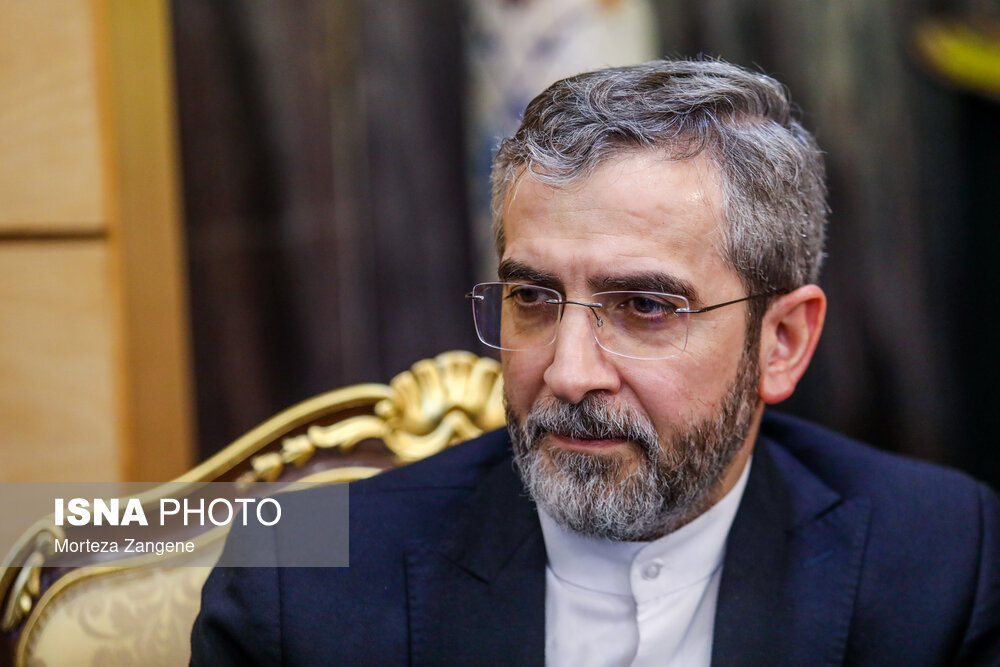In an interview with CNN Turk on Saturday, Bagheri Kani said Israelis are well aware that Iran will “wisely” and “effectively” use its power to “put them in their place.”
“The Zionists’ airstrike on the consular section of the Iranian embassy in the Syrian capital Damascus prompted the country to effectively and wisely utilize its power components in order to ensure the security and stability of the region,” he stated.
“I think Zionists know very well that in case they try to destabilize the region and undermine its security, Iran will use its might to contain them and put them in their place,” he added.
Iran’s Islamic Revolution Guards Corps (IRGC) launched extensive missile and drone strikes late on April 13 on the Israeli-occupied territories. The series of retaliatory strikes, dubbed Operation True Promise, inflicted damage on Israeli military bases across the occupied lands.
The operation came in retaliation for the Israeli attack on April 1 against the Iranian consulate in Damascus, located next to the embassy building in Damascus’s Mezzeh district.
The airstrike killed two senior Iranian military personnel who were on an advisory mission to Syria as well as five of their accompanying officers.
The interim Iranian foreign minister also urged Muslim countries to halt all political and economic cooperation with the Israeli regime and impose a mass boycott on Israeli products.
Such measures would be the most effective means for Muslim nations to demonstrate solidarity with the Palestinian cause, and oppose Israeli policies, Bagheri Kani stressed.
The senior Iranian diplomat also pointed to Tehran’s civilian nuclear program, stressing that the Islamic Republic’s atomic program is in strict accordance with the International Atomic Energy Agency (IAEA) requirements and international treaties.
“Iran’s nuclear program and activities are fully legal and under the supervision of the IAEA,” Bagheri Kani noted.
On Wednesday, the IAEA’s Board of Governors passed a resolution against Iran during its meeting, despite warnings from Tehran that it would react decisively to such a measure.
The resolution, supported and put forward by Britain, France and Germany, urged Iran to cooperate more with the IAEA and to allow an increased number of inspectors to visit nuclear sites in the country.
Tehran “rejected all the allegations” in the E3’s letter and “reiterated its position concerning its peaceful nuclear program and the JCPOA”.
Iran has already agreed to some additional IAEA inspections and resolved issues related to one of the three sites and the alleged presence of uranium particles there.
Over the past years, Iran has made great strides in its peaceful nuclear energy program in defiance of illegal sanctions and other hurdles created by the Western governments.
Iran is also among the original signatories to the Nuclear Non-Proliferation Treaty (NPT) and has been closely cooperating with the IAEA.
By signing the 2015 nuclear agreement, formally known as the Joint Comprehensive Plan of Action (JCPOA), with six world powers, Iran also proved to the world the peaceful nature of its nuclear program.
But, Washington’s unilateral withdrawal from JCPOA in May 2018 and its subsequent re-imposition of sanctions against Tehran left the future of the deal in limbo.
